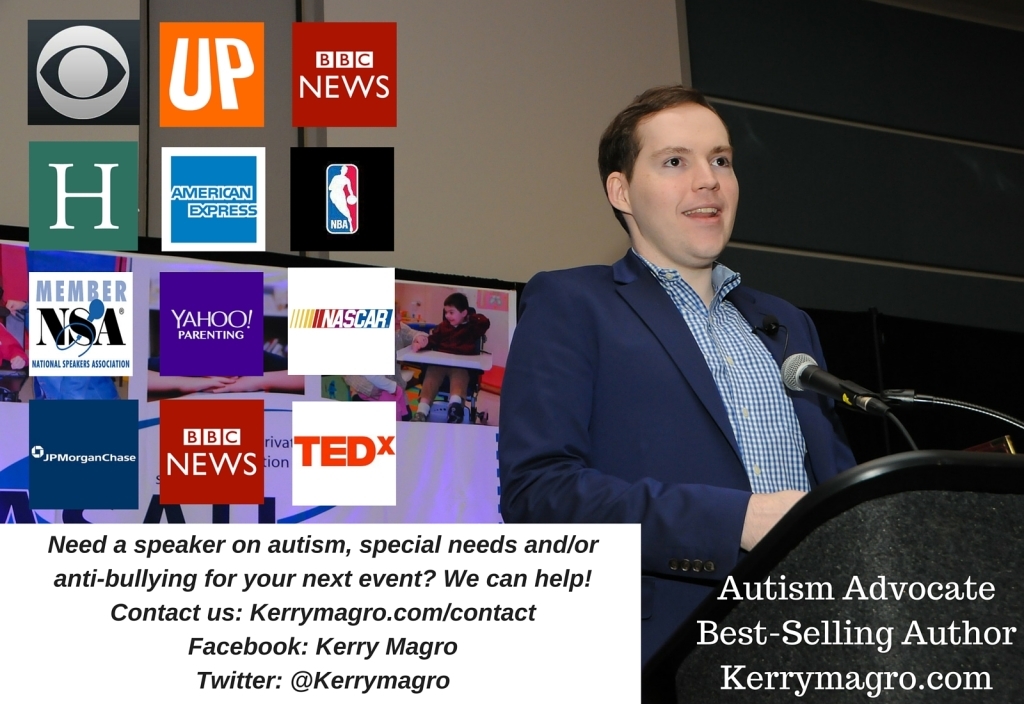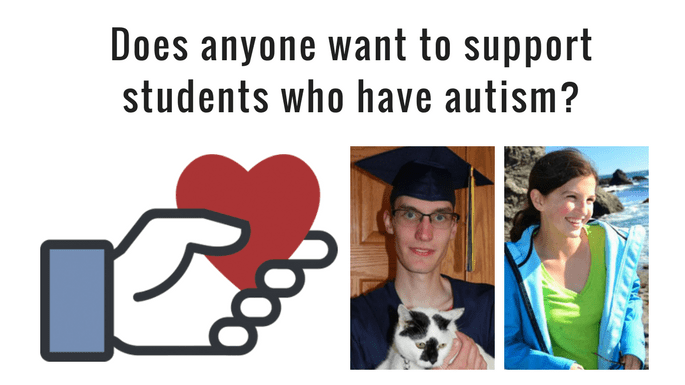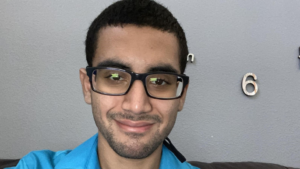This guest post is by Maggie, a young woman on the autism spectrum who was accepted into college. Maggie is applying for the Spring 2018 Making a Difference Autism Scholarship via the nonprofit KFM Making a Difference. You can read more about the organization and how to apply for our scholarship here. You can help our scholarship program continue to help these students by making a donation here (the majority of our scholarship program is ran through donors from our community such as yourself so no matter if you could donate anything, whether it be $5 anywhere up to $5,000 it would be making a difference!).
It’s never been hidden from me that I was autistic. My parents never kept this information a secret from me; I’ve always known, since I was old enough to understand what a diagnosis even was in my child mind. Growing up, I gradually learned exactly what the implications of me being autistic meant for my future. I gained a critical eye towards how it was being portrayed in the media – in films, television, novels, and for charities – and I realized for all that it depicted, it never really gave me a blueprint for how to grow up into a well-functioning adult. All the characters that were directly confirmed and written as autistic, such as Max Braverman from Parenthood or Christopher Boone from The Curious Incident of the Dog in the Night-Time – in addition to fitting the hetersexual cisgender nerdy white male archetype – were either children or teenagers, or in cases such as Rain Man possess savant skills that make them appear childlike. Even for characters that merely share similar traits with autistic individuals, such as Sheldon Cooper from The Big Bang Theory , they are also never portrayed in a positive light. Their obsessive interests in math or science or trains are mocked, as are their inflexible adherence towards routine and “stimming” techniques, and their intelligence is stereotyped as geeky and therefore hindering them from being popular or “normal.” I also never learned until much later just how differently autism is viewed in girls versus boys; I was always seen as quiet, shy, very smart, able to converse easily with adults, maybe even an “old soul,” and that helped me easily slip under the radar during my adolescent years. Unless I was in any mandatory testing with the disability department, I never revealed that I was autistic to my friends, and I deliberately distanced myself from the special needs students for fear of being teased, targeted, and treated with transparent pity. Since graduating, in hindsight I regret shutting myself away from the universe, but I do recognize that it was mainly a defense mechanism from the harshness and insecurity that is adolescence, as well as my instability in reconciling my place between denying my autism and embracing it. It definitely didn’t help that there were very few if any female characters with autism that I could embrace as role models; it wasn’t until college that I saw a female recurring character – Isadora Smackle from Girl Meets World – that explicitly defined herself as having Aspergers’, and it made me sad that I never had that experience growing up believing I could be like the trendy, cool teen stars I read about in magazines and watched in films and on TV.
What I ultimately internalized is not only that I couldn’t even see my own gender on the screen, but I would never be viewed as the main character in my own story. Unless the media’s entire purpose is for educational reasons, I would always be the side character, viewed as something to protect or take care of, a burden or a freak, the one-off character in the very special episode where I merely exist for everyone else in the audience to learn a lesson about tolerance or respect that they should already know. I realized how can I gain independence, take control, when I am continually denied my basic agency, my words and thoughts always filtered through someone else’s mouth?
After I was formally diagnosed with Aspergers’ at age three, my parents enrolled me in an intensive Applied Behavioral Analysis (ABA) program consisting of 40 hours a week of comprehensive therapy delivered by a rotating Therapeutic Support Staff (TSS), which continued for about two years. I then had a TSS on hand from preschool until first grade, and during my entire public school education due to my initial diagnosis I maintained a steady IEP through my district. I was always told that my greatest problem areas were in reciprocal conversation, social skills, and group participation, in addition to strengthening basic tasks such as maintaining eye contact. I don’t remember ever really getting the impression – other than from my parents – that I would or even could ever live independently, it was never really presented as a possible future.
Now that I’m graduating from university, I have a disadvantage from many millennials in my situation in adequately preparing for my inevitable future. It certainly isn’t that I am not ambitious or don’t have any long-term goals; I am currently working dual unpaid internships along with trying to find a weekend job in order to make a little extra cash. After writing many term papers throughout the years regarding many different topics about autism, I am even considering doing my senior Honors Capstone project about representation in the media.
I wrestle internally with the idea of being seen as a “role model” for the community; I believe that mentality can be very damaging in not allowing for any mistakes or human error, and I wouldn’t liked being viewed as the “ideal” of an autistic person when I know I am very lucky to have received the support and resources that I have. But at the same time, if I ever get a chance to express my perspective, in any medium, about my experiences being autistic, I will take it. I hope I can inspire a girl in the future similar to my younger self that she can be anything and everything she wants in the universe, and I hope I make her proud.

Kerry Magro, a professional speaker and best-selling author who is also on the autism spectrum started the nonprofit KFM Making a Difference in 2011 to help students with autism receive scholarship aid to pursue a post-secondary education. Help us continue to help students with autism go to college by making a tax-deductible donation to our nonprofit here. Also, consider having Kerry, one of the only professionally accredited speakers on the spectrum in the country, speak at your next event by sending him an inquiry here.

We’d also appreciate if you could start a Facebook Fundraiser to support our nonprofit’s scholarship fund! You can learn more about how you can do just that here














